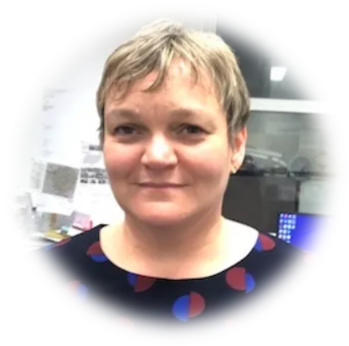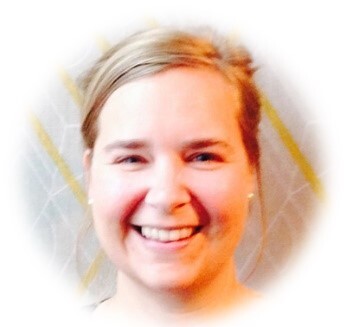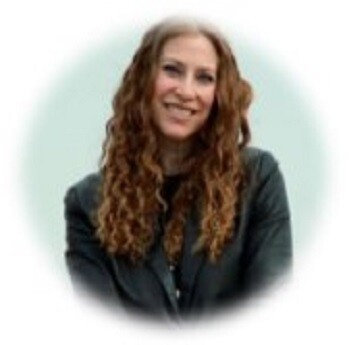Lessons from two nurses practitioners and a person living with MS
Digital tools and information sources have become indispensable in the field of neuroscience with the exchange of medical information, patient education and assessments all now being facilitated through digitalisation. Nurses within neuroscience are now expected to utilise multiple sources of digital information to support their clinical practice, transforming the way in which they care for people with MS. Despite this, 50% of nurse attending the webinar indicated that they had either moderate or limited confidence in using digital tools, with only 8% stating they were highly confident.
In light of this, MS Nurse PRO, with support from the European Union IDEAHL project “Empowerment of EU citizens in using digital tools to take a more active role in the management of their own health” held a webinar focused on digital skills to support neuroscience nurses involved in the management of people with MS, end February, 2024. The main objectives of the webinar were to:
▪️ provide insights into reliable and trustworthy digital information sources tailored for neuroscience nurses and individuals with MS, along with tips on how to navigate these information sources
▪️ explore current digital applications utilised in clinical practice by neuroscience nurses, with expert insights on best practices for their effective implementation.
Talks will be added at learning materials soon.

Noreen Barker
Consultant Nurse, MS Team
The National Hospital for Neurology and Neurosurgery
London, UK

Annick Van Merhaegen-Wieleman
MS Nurse
University Hospital of Brussels
Belgium

Shana Pezaro
Person with MS
Patient advocate and political activist
UK
Valuale insights
Noreen Barker
Digital information sources and tools available for MS: How can nurses help people with MS make sense of it?
Noreen began by providing an overview of the digital information sources and digital tools available to neuroscience nurses in the UK with a particular emphasis on the role of the neuroscience nurse in supporting people with MS to navigate the volume of information available online to them.
Noreen explained her go-to digital sources are primarily those provided by professional organisations (e.g., UKMSSNA, IOMSN, RCN), voluntary organisations (e.g., MS Trust, MS Society, MSIF, EMSP), and educational providers (e.g., MS Academy, MS Nurse PRO). All of these provide, amongst other things, high quality online information, support, and training resources.
There is also a vast number of digital sources available for people with MS in the UK including sources from the National Health Service, voluntary organisations (e.g., MS Together, Overcoming MS) and patient-developed sources (e.g., blogs, social media groups, support groups). In order to support people with MS to find good, suitable, trustworthy information, nurses should:
• Be aware of the type of information that people with MS are likely to be interested in (e.g., treatment options, common symptoms) and understand that this will change over time
• Be aware of any barriers to information seeking, e.g., cognition, access to internet
• Discuss with the person where they find information
• Be aware of good sources of information and signpost the person to these sources
• Be open to discussing with the person any information they have found and integrating this with information from other sources that are perhaps more suitable or trustworthy
Annick Van Merhaegen-Wieleman
Digitalising MS care
Digital tools have been used for many years, for example, as a form of communication, or as a way to access medical records. Digitalisation can enhance quality of care, patient safety and outcomes, as well as efficiency and cost effectiveness.
Annick provided an overview of the digital technology available for MS, both for the nurse and for people with MS, including practicalities and limitations. She highlighted some of the digital sources for healthcare professionals she regularly uses (websites, applications and podcasts) and why she uses them (for information, data and communication). These include www.uptodate.com for evidence-based medical information, www.ich.org/page/ich-guidelines and nurseslabs.com/nursing-diagnosis for relevant guidelines, and websites of national MS societies for general information. Common applications used for patient communications include Messenger, WhatsApp and Teams, but security and safety of these applications must be considered.
For patient information sources, Annick stressed the importance of referring people with MS to official websites and platforms (e.g., EMSP and local official patient support groups). She also highlighted the low engagement rate for many available patient applications; this could be due to a variety of reasons including technical issues, lack of time, unsuccessful previous attempts, online literacy and no clear understanding of what the direct benefit is. Nurses can play an important role in bridging the gap by helping people with MS understand the benefits of these applications in managing their MS.
Shana Pezaro
Shana finished by providing some insights from the point of view of a person with MS and sharing some of the trusted sources she regularly uses to access up-to-date information. Shana primarily finds information via communications available on several Facebook pages, most notably the MS Trust and MS Society pages. From here she is able to join webinars discussing, for example, treatments and lifestyle interventions, visit virtual cafés that can lead to follow up chats with fellow people with MS, and participate in online exercise classes (e.g., living well with MS). She also uses different applications for medication alerts and appointment scheduling and management including Patients know Best (link with NHS), Patient Access application and the NHS application. Some of the challenges Shana has faced include applications that do not always ‘talk’ to each other and accessibility issues (e.g., voice to text does not work in many applications).
At the conclusion of the webinar, 85% of nurse attendees indicated some level of increase in their confidence to use digital tools to support people with MS (15% slight increase, 23% moderate increase, 38% significant increase, 8% dramatic increase). 92% also felt more equipped to use peer-reviewed online resources to enhance patient care and 50% indicated that they were highly likely or fully intended to incorporate the knowledge they had gained from the webinar into their patient care.